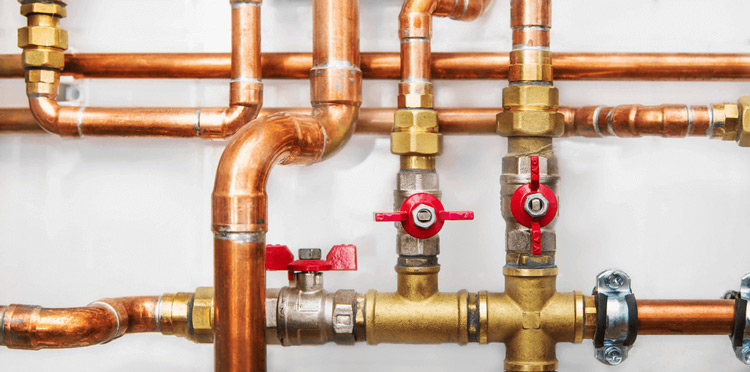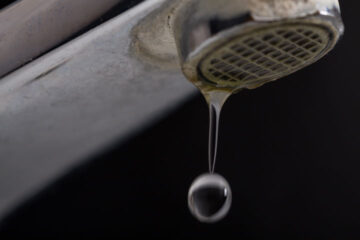Moving? How Hard Water Has Affected Your Home

When most people think of hard water troubles in the home, you think of the crusty residue on your sink and the spots on your glasses. You may be thinking about the stiff laundry or that squeaky feeling on your skin when you shower. But believe it or not, these are only the surface symptoms of hard water running through your pipes. The real trouble is beneath the surface, inside the pipes themselves. For any homeowner who wants their home to last a long time in good repair, hard water is the enemy.
Those minerals that cause the visible crusty buildup, prevent soap from sudsing, and leave spots on your dishes are doing even more damage to your pipes. You might be surprised just how much trouble simple scale buildup can cause to your home’s plumbing. Let’s take a look at the damage hard water can do and the plumbing issues that may arise.
Plumbing Issue #1: Clogged Drains
One of the most obvious hard water plumbing issues is how often your drains will clog. All homes deal with the occasional clogged drain from hair in the shower drain, grease in the kitchen drain, or a combination of factors. However, scale makes these clogs far more likely and frequent.
What happens is that mineral buildup you see on the tub, faucet, and dishes is also building up inside your pipes. Layer after thin, flaky layer until the inside circumference of the pipe is much narrower than it appears to be on the outside. This makes it easier for any clogging material to catch in your pipes and cause a drain clog.
Plumbing Issue #2: Low Water Pressure
However, this pipe narrowing buildup doesn’t just happen in your drains. Consider the fact that hard water first has to run through your outflow pipes before it can even hit a drain. That mineral buildup is happening in your water supply lines as well. For every gallon of water that flows to your faucets, shower heads, and water-running appliances, more scale builds up and slowly narrows the passageway.
This is why homes with hard water often suffer from low water pressure, that is not enough water coming out of the tap at once or with any great force. The problem isn’t your water main (necessarily) but rather the ability of water to flow through your pipes at all. And this problem is harder to solve because you can’t pour drain cleaner up your pipes.
Plumbing Issue #3: Corroded Pipe Joints
Another problem hard water scale causes for your plumbing infrastructure happens at the joints. We’ve all seen what a corroded plumbing joint looks like, all blue-green or rust-red. Fluffy in appearance, sharp and rough to the touch, and nearly impossible to remove without damaging the pipe underneath.
Corrosion happens when there is a small leak around the connection to the joint and the water starts to slowly damage the joint. When hard water hits a joint that is not perfectly sealed, it starts to leave that same scale buildup in and around the joint. Over years, this can result in nearly destroyed joints or joints that are nearly impossible to separate.
Plumbing Issue #4: Short Appliance Life
Finally, hard water isn’t just bad for the pipes in your walls or the drains under your sink. Your larger appliances that run water also have integral plumbing that can be damaged by hard water. Water-running appliances are often delicate machines with small utility pipes, filters, and nozzles that use the water strategically to make coffee, wash dishes, wash clothing, and so on.
When that hard water mineral buildup runs through your appliances, it can actually shorten their lifespan. Not only will you have to replace your filters and parts more often, but the hard water can wear down the delicate or plastic parts, causing homeowners to buy new appliances more frequently than households without hard water problems.
Fortunately, you don’t have to live with hard water forever. With a home water softener, you can avoid plumbing issues, save your pipes, appliances, and hours of surface scrubbing every year. Contact us today to explore your home water softening options.




